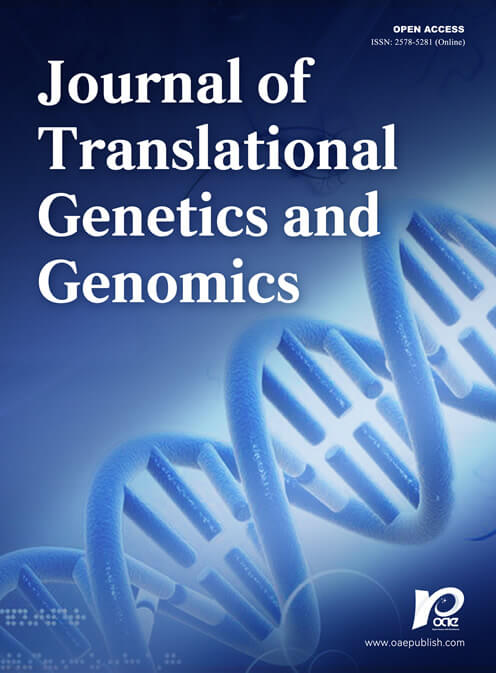REFERENCES
1. Bentata Y. Mycophenolates: the latest modern and potent immunosuppressive drugs in adult kidney transplantation: what we should know about them? Artif Organs 2020;44:561-76.
2. Guo M, Wang ZJ, Yang HW, Meng L, Tan RY, et al. Influence of genetic polymorphisms on mycophenolic acid pharmacokinetics and patient outcomes in renal transplantation. Curr Drug Metab 2018;19:1199-205.
3. Staatz CE, Tett SE. Pharmacology and toxicology of mycophenolate in organ transplant recipients: an update. Arch Toxicol 2014;88:1351-89.
4. da Silva MB, da Cunha FF, Terra FF, Camara NO. Old game, new players: Linking classical theories to new trends in transplant immunology. World J Transplant 2017;7:1-25.
5. Cooper M, Salvadori M, Budde K, Oppenheimer F, Sollinger H, et al. Enteric-coated mycophenolate sodium immunosuppression in renal transplant patients: efficacy and dosing. Transplant Rev (Orlando) 2012;26:233-40.
6. Fujiyama N, Miura M, Kato S, Sone T, Isobe M, et al. Involvement of carboxylesterase 1 and 2 in the hydrolysis of mycophenolate mofetil. Drug Metab Dispos 2010;38:2210-7.
7. Burg M, Säemann MD, Wieser C, Kramer S, Fischer W, et al. Enteric-coated mycophenolate sodium reduces gastrointestinal symptoms in renal transplant patients. Transplant Proc 2009;41:4159-64.
9. Bernard O, Guillemette C. The main role of UGT1A9 in the hepatic metabolism of mycophenolic acid and the effects of naturally occurring variants. Drug Metab Dispos 2004;32:775-8.
10. Meier-Kriesche HU, Shaw LM, Korecka M, Kaplan B. Pharmacokinetics of mycophenolic acid in renal insufficiency. Ther Drug Monit 2000;22:27-30.
11. Shipkova M, Armstrong VW, Oellerich M, Wieland E. Acyl glucuronide drug metabolites: toxicological and analytical implications. Ther Drug Monit 2003;25:1-16.
12. Picard N, Cresteil T, Prémaud A, Marquet P. Characterization of a phase 1 metabolite of mycophenolic acid produced by CYP3A4/5. Ther Drug Monit 2004;26:600-8.
13. Michelon H, König J, Durrbach A, Quteineh L, Verstuyft C, et al. SLCO1B1 genetic polymorphism influences mycophenolic acid tolerance in renal transplant recipients. Pharmacogenomics 2010;11:1703-13.
14. Picard N, Yee SW, Woillard JB, Lebranchu Y, Le Meur Y, et al. The role of organic anion-transporting polypeptides and their common genetic variants in mycophenolic acid pharmacokinetics. Clin Pharmacol Ther 2010;87:100-8.
15. Westley IS, Brogan LR, Morris RG, Evans AM, Sallustio BC. Role of Mrp2 in the hepatic disposition of mycophenolic acid and its glucuronide metabolites: effect of cyclosporine. Drug Metab Dispos 2006;34:261-6.
16. Kobayashi M, Saitoh H, Kobayashi M, Tadano K, Takahashi Y, et al. Cyclosporin A, but not tacrolimus, inhibits the biliary excretion of mycophenolic acid glucuronide possibly mediated by multidrug resistance-associated protein 2 in rats. J Pharmacol Exp Ther 2004;309:1029-35.
17. Jetter A, Kullak-Ublick GA. Drugs and hepatic transporters: a review. Pharmacol Res 2020;154:104234.
18. Wang J, Figurski M, Shaw LM, Burckart GJ. The impact of P-glycoprotein and Mrp2 on mycophenolic acid levels in mice. Transpl Immunol 2008;19:192-6.
19. Patel CG, Ogasawara K, Akhlaghi F. Mycophenolic acid glucuronide is transported by multidrug resistance-associated protein 2 and this transport is not inhibited by cyclosporine, tacrolimus or sirolimus. Xenobiotica 2013;43:229-35.
20. Wang D, Zou L, Jin Q, Hou J, Ge G, et al. Human carboxylesterases: a comprehensive review. Acta Pharm Sin B 2018;8:699-712.
21. Fujiyama N, Miura M, Satoh S, Inoue K, Kagaya H, et al. Influence of carboxylesterase 2 genetic polymorphisms on mycophenolic acid pharmacokinetics in Japanese renal transplant recipients. Xenobiotica 2009;39:407-14.
22. Cilião HL, Camargo-Godoy RBO, Souza MF, Zanuto A, Delfino VDA, et al. Polymorphisms in IMPDH2, UGT2B7, and CES2 genes influence the risk of graft rejection in kidney transplant recipients taking mycophenolate mofetil. Mutat Res Genet Toxicol Environ Mutagen 2018;836:97-102.
23. Satoh S, Tada H, Murakami M, Tsuchiya N, Li Z, et al. Circadian pharmacokinetics of mycophenolic Acid and implication of genetic polymorphisms for early clinical events in renal transplant recipients. Transplantation 2006;82:486-93.
24. Genvigir FDV, Campos-Salazar AB, Felipe CR, Tedesco-Silva H Jr, Medina-Pestana JO, et al.
25. Grinyó J, Vanrenterghem Y, Nashan B, Vincenti F, Ekberg H, et al. Association of four DNA polymorphisms with acute rejection after kidney transplantation. Transpl Int 2008;21:879-91.
26. Grenda R, Prokurat S, Ciechanowicz A, Piatosa B, Kaliciński P. Evaluation of the genetic background of standard-immunosuppressant-related toxicity in a cohort of 200 paediatric renal allograft recipients - a retrospective study. Ann Transplant 2009;14:18-24.
27. Varnell CD, Fukuda T, Kirby CL, Martin LJ, Warshaw BL, et al. Mycophenolate mofetil-related leukopenia in children and young adults following kidney transplantation: influence of genes and drugs. Pediatr Transplant 2017;21:e13033.
28. Jacobson PA, Schladt D, Oetting WS, Leduc R, Guan W, et al; DeKAF investigators. Genetic determinants of mycophenolate-related anemia and leukopenia after transplantation. Transplantation 2011;91:309-16.
29. Woillard JB, Picard N, Thierry A, Touchard G, Marquet P; DOMINOS study group. Associations between polymorphisms in target, metabolism, or transport proteins of mycophenolate sodium and therapeutic or adverse effects in kidney transplant patients. Pharmacogenet Genomics 2014;24:256-62.
30. Genvigir FDV, Nishikawa AM, Felipe CR, Tedesco-Silva H Jr, Oliveira N, et al. Influence of ABCC2, CYP2C8, and CYP2J2 polymorphisms on tacrolimus and mycophenolate sodium-based treatment in brazilian kidney transplant recipients. Pharmacotherapy 2017;37:535-45.
31. Bernard O, Tojcic J, Journault K, Perusse L, Guillemette C. Influence of nonsynonymous polymorphisms of UGT1A8 and UGT2B7 metabolizing enzymes on the formation of phenolic and acyl glucuronides of mycophenolic acid. Drug Metab Dispos 2006;34:1539-45.
32. Meech R, Hu DG, McKinnon RA, Mubarokah SN, Haines AZ, et al. The UDP-glycosyltransferase (UGT) superfamily: new members, new functions, and novel paradigms. Physiol Rev 2019;99:1153-222.
33. Inoue K, Miura M, Satoh S, Kagaya H, Saito M, et al. Influence of UGT1A7 and UGT1A9 intronic I399 genetic polymorphisms on mycophenolic acid pharmacokinetics in Japanese renal transplant recipients. Ther Drug Monit 2007;29:299-304.
34. Woillard JB, Rerolle JP, Picard N, Rousseau A, Drouet M, et al. Risk of diarrhoea in a long-term cohort of renal transplant patients given mycophenolate mofetil: the significant role of the UGT1A8 2 variant allele. Br J Clin Pharmacol 2010;69:675-83.
35. Xie XC, Li J, Wang HY, Li HL, Liu J, et al. Associations of UDP-glucuronosyltransferases polymorphisms with mycophenolate mofetil pharmacokinetics in Chinese renal transplant patients. Acta Pharmacol Sin 2015;36:644-50.
36. Kagaya H, Inoue K, Miura M, Satoh S, Saito M, et al. Influence of UGT1A8 and UGT2B7 genetic polymorphisms on mycophenolic acid pharmacokinetics in Japanese renal transplant recipients. Eur J Clin Pharmacol 2007;63:279-88.
37. Geng F, Jiao Z, Dao YJ, Qiu XY, Ding JJ, et al. The association of the UGT1A8, SLCO1B3 and ABCC2/ABCG2 genetic polymorphisms with the pharmacokinetics of mycophenolic acid and its phenolic glucuronide metabolite in Chinese individuals. Clin Chim Acta 2012;413:683-90.
38. Li LQ, Chen DN, Li CJ, Li QP, Chen Y, et al. Impact of UGT2B7 and ABCC2 genetic polymorphisms on mycophenolic acid metabolism in Chinese renal transplant recipients. Pharmacogenomics 2018;19:1323-34.
39. van Schaik RH, van Agteren M, de Fijter JW, Hartmann A, Schmidt J, et al. UGT1A9-275T>A/-2152C>T polymorphisms correlate with low MPA exposure and acute rejection in MMF/tacrolimus-treated kidney transplant patients. Clin Pharmacol Ther 2009;86:319-27.
40. Zhao W, Fakhoury M, Deschênes G, Roussey G, Brochard K, et al. Population pharmacokinetics and pharmacogenetics of mycophenolic acid following administration of mycophenolate mofetil in de novo pediatric renal-transplant patients. J Clin Pharmacol 2010;50:1280-91.
41. Vu D, Tellez-Corrales E, Yang J, Qazi Y, Shah T, et al. Genetic polymorphisms of UGT1A8, UGT1A9 and HNF-1α and gastrointestinal symptoms in renal transplant recipients taking mycophenolic acid. Transpl Immunol 2013;29:155-61.
42. Betônico GN, Abbud-Filho M, Goloni-Bertollo EM, Alvarenga MP, Guillemette C, et al. Influence of UDP-glucuronosyltransferase polymorphisms on mycophenolate mofetil-induced side effects in kidney transplant patients. Transplant Proc 2008;40:708-10.
43. Prausa SE, Fukuda T, Maseck D, Curtsinger KL, Liu C, et al. UGT genotype may contribute to adverse events following medication with mycophenolate mofetil in pediatric kidney transplant recipients. Clin Pharmacol Ther 2009;85:495-500.
44. Girard H, Court MH, Bernard O, Fortier LC, Villeneuve L, et al. Identification of common polymorphisms in the promoter of the UGT1A9 gene: evidence that UGT1A9 protein and activity levels are strongly genetically controlled in the liver. Pharmacogenetics 2004;14:501-15.
45. Kuypers DR, de Jonge H, Naesens M, de Loor H, Halewijck E, et al. Current target ranges of mycophenolic acid exposure and drug-related adverse events: a 5-year, open-label, prospective, clinical follow-up study in renal allograft recipients. Clin Ther 2008;30:673-83.
46. Sánchez-Fructuoso AI, Maestro ML, Calvo N, Viudarreta M, Pérez-Flores I, et al. The prevalence of uridine diphosphate-glucuronosyltransferase 1A9 (UGT1A9) gene promoter region single-nucleotide polymorphisms T-275A and C-2152T and its influence on mycophenolic acid pharmacokinetics in stable renal transplant patients. Transplant Proc 2009;41:2313-6.
47. Kuypers DR, Naesens M, Vermeire S, Vanrenterghem Y. The impact of uridine diphosphate-glucuronosyltransferase 1A9 (UGT1A9) gene promoter region single-nucleotide polymorphisms T-275A and C-2152T on early mycophenolic acid dose-interval exposure in de novo renal allograft recipients. Clin Pharmacol Ther 2005;78:351-61.
48. Baldelli S, Merlini S, Perico N, Nicastri A, Cortinovis M, et al. C-440T/T-331C polymorphisms in the UGT1A9 gene affect the pharmacokinetics of mycophenolic acid in kidney transplantation. Pharmacogenomics 2007;8:1127-41.
49. Kiang TKL, Partovi N, Shapiro RJ, Berman JM, Collier AC, et al. Regression and genomic analyses on the association between dose-normalized mycophenolic acid exposure and absolute neutrophil count in steroid-free, de novo kidney transplant recipients. Clin Drug Investig 2018;38:1011-22.
50. Yu ZC, Zhou PJ, Wang XH, Françoise B, Xu D, et al. Population pharmacokinetics and Bayesian estimation of mycophenolic acid concentrations in Chinese adult renal transplant recipients. Acta Pharmacol Sin 2017;38:1566-79.
51. Pazik J, Ołdak M, Dąbrowski M, Lewandowski Z, Sitarek E, et al. Association of UDP-glucuronosyltransferase 1A9 (UGT1A9) gene polymorphism with kidney allograft function. Ann Transplant 2011;16:69-73.
52. Pazik J, Ołdak M, Lewandowski Z, Dąbrowski M, Podgórska M, et al. Recipient uridine 5’-diphospho-glucuronosyltransferase UGT1A9 c.98T>C variant determines transplanted kidney filtration rate. Transplant Proc 2014;46:2678-82.
53. Djebli N, Picard N, Rérolle JP, Le Meur Y, Marquet P. Influence of the UGT2B7 promoter region and exon 2 polymorphisms and comedications on Acyl-MPAG production in vitro and in adult renal transplant patients. Pharmacogenet Genomics 2007;17:321-30.
54. van Agteren M, Armstrong VW, van Schaik RH, de Fijter H, Hartmann A, et al. AcylMPAG plasma concentrations and mycophenolic acid-related side effects in patients undergoing renal transplantation are not related to the UGT2B7-840G>A gene polymorphism. Ther Drug Monit 2008;30:439-44.
55. Cattaneo D, Perico N, Gaspari F, Gotti E, Remuzzi G. Glucocorticoids interfere with mycophenolate mofetil bioavailability in kidney transplantation. Kidney Int 2002;62:1060-7.
56. Duguay Y, Báár C, Skorpen F, Guillemette C. A novel functional polymorphism in the uridine diphosphate-glucuronosyltransferase 2B7 promoter with significant impact on promoter activity. Clin Pharmacol Ther 2004;75:223-33.
57. Yoo EC, Alvarez-Elías AC, Todorova EK, Filler G. Developmental changes of MPA exposure in children. Pediatr Nephrol 2016;31:975-82.
58. Bruhn O, Cascorbi I. Polymorphisms of the drug transporters ABCB1, ABCG2, ABCC2 and ABCC3 and their impact on drug bioavailability and clinical relevance. Expert Opin Drug Metab Toxicol 2014;10:1337-54.
59. Bouamar R, Hesselink DA, van Schaik RH, Weimar W, van der Heiden IP, et al. Mycophenolic acid-related diarrhea is not associated with polymorphisms in SLCO1B nor with ABCB1 in renal transplant recipients. Pharmacogenet Genomics 2012;22:399-407.
60. Treiber A, Schneiter R, Häusler S, Stieger B. Bosentan is a substrate of human OATP1B1 and OATP1B3: inhibition of hepatic uptake as the common mechanism of its interactions with cyclosporin A, rifampicin, and sildenafil. Drug Metab Dispos 2007;35:1400-7.
61. Staatz CE, Goodman LK, Tett SE. Effect of CYP3A and ABCB1 single nucleotide polymorphisms on the pharmacokinetics and pharmacodynamics of calcineurin inhibitors: Part I. Clin Pharmacokinet 2010;49:141-75.
62. Naesens M, Kuypers DR, Verbeke K, Vanrenterghem Y. Multidrug resistance protein 2 genetic polymorphisms influence mycophenolic acid exposure in renal allograft recipients. Transplantation 2006;82:1074-84.
63. Lloberas N, Torras J, Cruzado JM, Andreu F, Oppenheimer F, et al; Spanish Pharmacogenetic Symphony Substudy Group. Influence of MRP2 on MPA pharmacokinetics in renal transplant recipients-results of the pharmacogenomic substudy within the symphony study. Nephrol Dial Transplant 2011;26:3784-93.
64. Božina N, Lalić Z, Nađ-Škegro S, Borić-Bilušić A, Božina T, et al. Steady-state pharmacokinetics of mycophenolic acid in renal transplant patients: exploratory analysis of the effects of cyclosporine, recipients’ and donors’ ABCC2 gene variants, and their interactions. Eur J Clin Pharmacol 2017;73:1129-40.
65. Miura M, Satoh S, Inoue K, Kagaya H, Saito M, et al. Influence of SLCO1B1, 1B3, 2B1 and ABCC2 genetic polymorphisms on mycophenolic acid pharmacokinetics in Japanese renal transplant recipients. Eur J Clin Pharmacol 2007;63:1161-9.
66. Colom H, Lloberas N, Andreu F, Caldés A, Torras J, et al. Pharmacokinetic modeling of enterohepatic circulation of mycophenolic acid in renal transplant recipients. Kidney Int 2014;85:1434-43.
67. Li TT, An JX, Xu JY, Tuo BG. Overview of organic anion transporters and organic anion transporter polypeptides and their roles in the liver. World J Clin Cases 2019;7:3915-33.
68. Song W, Li D, Tao L, Luo Q, Chen L. Solute carrier transporters: the metabolic gatekeepers of immune cells. Acta Pharm Sin B 2020;10:61-78.
69. Kalliokoski A, Niemi M. Impact of OATP transporters on pharmacokinetics. Br J Pharmacol 2009;158:693-705.
70. Wu TY, Peng Y, Pelleymounter LL, Moon I, Eckloff BW, et al. Pharmacogenetics of the mycophenolic acid targets inosine monophosphate dehydrogenases IMPDH1 and IMPDH2: gene sequence variation and functional genomics. Br J Pharmacol 2010;161:1584-98.
71. Wang J, Yang JW, Zeevi A, Webber SA, Girnita DM, et al. IMPDH1 gene polymorphisms and association with acute rejection in renal transplant patients. Clin Pharmacol Ther 2008;83:711-7.
72. Gensburger O, Van Schaik RH, Picard N, Le Meur Y, Rousseau A, et al. Polymorphisms in type I and II inosine monophosphate dehydrogenase genes and association with clinical outcome in patients on mycophenolate mofetil. Pharmacogenet Genomics 2010;20:537-43.
73. Shah S, Harwood SM, Döhler B, Opelz G, Yaqoob MM. Inosine monophosphate dehydrogenase polymorphisms and renal allograft outcome. Transplantation 2012;94:486-91.
74. Kagaya H, Miura M, Saito M, Habuchi T, Satoh S. Correlation of IMPDH1 gene polymorphisms with subclinical acute rejection and mycophenolic acid exposure parameters on day 28 after renal transplantation. Basic Clin Pharmacol Toxicol 2010;107:631-6.
75. Pazik J, Lewandowski Z, Nowacka Cieciura E, Ołdak M, Podgórska M, et al. Malnutrition risk in kidney recipients treated with mycophenolate mofetil is associated with IMPDH1 rs2278294 polymorphism. Transplant Proc 2018;50:1794-7.
76. Wang J, Zeevi A, Webber S, Girnita DM, Addonizio L, et al. A novel variant L263F in human inosine 5’-monophosphate dehydrogenase 2 is associated with diminished enzyme activity. Pharmacogenet Genomics 2007;17:283-90.
77. Mohamed MF, Frye RF, Langaee TY. Interpopulation variation frequency of human inosine 5’-monophosphate dehydrogenase type II (IMPDH2) genetic polymorphisms. Genet Test 2008;12:513-6.
78. Sombogaard F, van Schaik RH, Mathot RA, Budde K, van der Werf M, et al. Interpatient variability in IMPDH activity in MMF-treated renal transplant patients is correlated with IMPDH type II 3757T>C polymorphism. Pharmacogenet Genomics 2009;19:626-34.
79. Winnicki W, Weigel G, Sunder-Plassmann G, Bajari T, Winter B, et al. An inosine 5’-monophosphate dehydrogenase 2 single-nucleotide polymorphism impairs the effect of mycophenolic acid. Pharmacogenomics J 2010;10:70-6.
80. Pazik J, Ołdak M, Podgórska M, Lewandowski Z, Sitarek E, et al. Lymphocyte counts in kidney allograft recipients are associated with IMPDH2 3757T>C gene polymorphism. Transplant Proc 2011;43:2943-5.
81. McDonagh EM, Whirl-Carrillo M, Garten Y, Altman RB, Klein TE. From pharmacogenomic knowledge acquisition to clinical applications: the PharmGKB as a clinical pharmacogenomic biomarker resource. Biomark Med 2011;5:795-806.
82. Whirl-Carrillo M, McDonagh EM, Hebert JM, Gong L, Sangkuhl K, et al. Pharmacogenomics knowledge for personalized medicine. Clin Pharmacol Ther 2012;92:414-7.
83. Han N, Yun HY, Kim IW, Oh YJ, Kim YS, et al. Population pharmacogenetic pharmacokinetic modeling for flip-flop phenomenon of enteric-coated mycophenolate sodium in kidney transplant recipients. Eur J Clin Pharmacol 2014;70:1211-9.
84. Zhang WX, Chen B, Jin Z, Yu Z, Wang X, et al. Influence of uridine diphosphate (UDP)-glucuronosyltransferases and ABCC2 genetic polymorphisms on the pharmacokinetics of mycophenolic acid and its metabolites in Chinese renal transplant recipients. Xenobiotica 2008;38:1422-36.
85. Olivera G, Sendra L, Herrero MJ, Berlanga P, Gargallo P, et al. Pharmacogenetics implementation in the clinics: information and guidelines for germline variants. CDR 2019; doi: 10.20517/cdr.2018.25.
86. Messina E, Micheli V, Giacomello A. Guanine nucleotide depletion induces differentiation and aberrant neurite outgrowth in human dopaminergic neuroblastoma lines: a model for basal ganglia dysfunction in Lesch-Nyhan disease. Neurosci Lett 2005;375:97-100.
87. Zhang J, Sun Z, Zhu Z, Yang J, Kang J, et al. Pharmacokinetics of mycophenolate mofetil and development of limited sampling strategy in early kidney transplant recipients. Front Pharmacol 2018;9:908.
88. Marquet P. Counterpoint: is pharmacokinetic or pharmacodynamic monitoring of calcineurin inhibition therapy necessary? Clin Chem 2010;56:736-9.
89. Metz DK, Holford N, Kausman JY, Walker A, Cranswick N, et al. Optimizing mycophenolic acid exposure in kidney transplant recipients: time for target concentration intervention. Transplantation 2019;103:2012-30.









